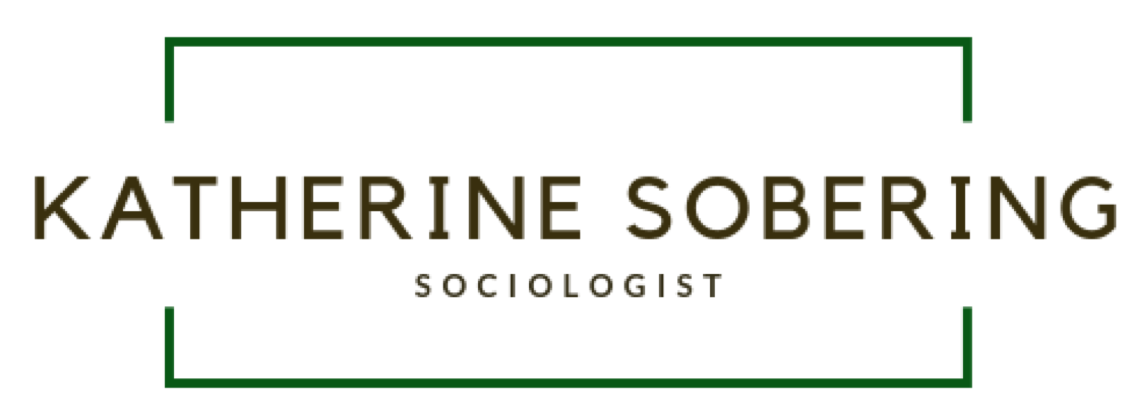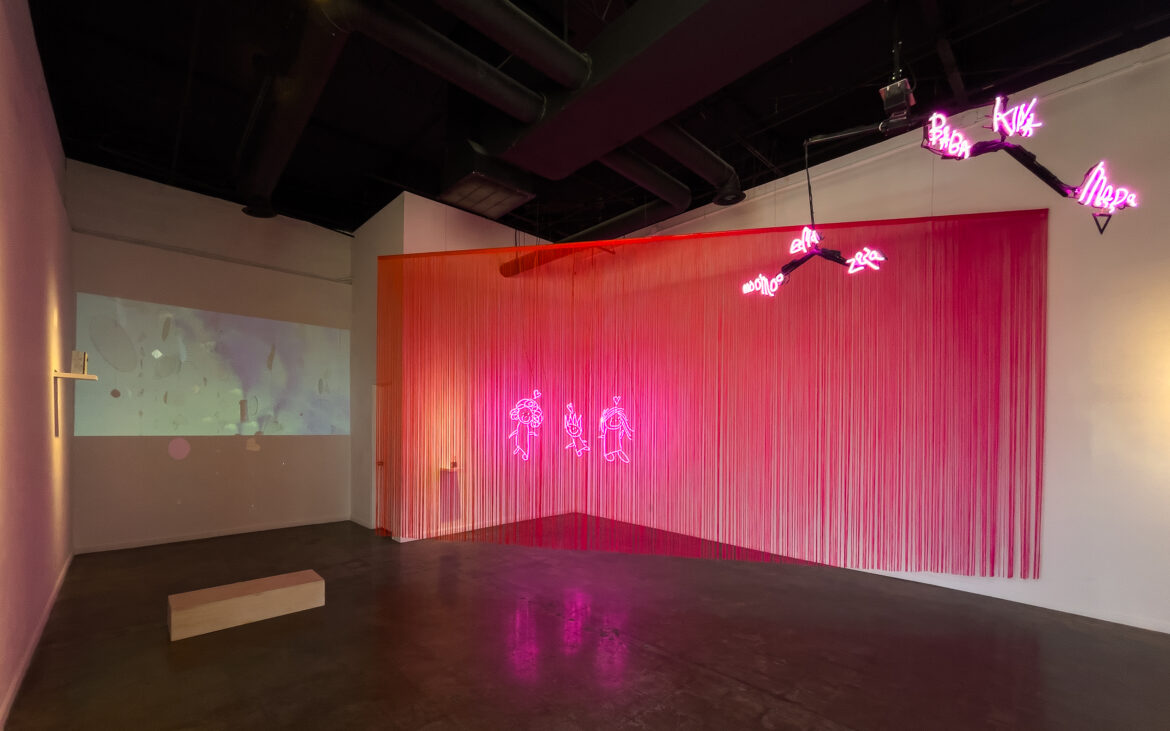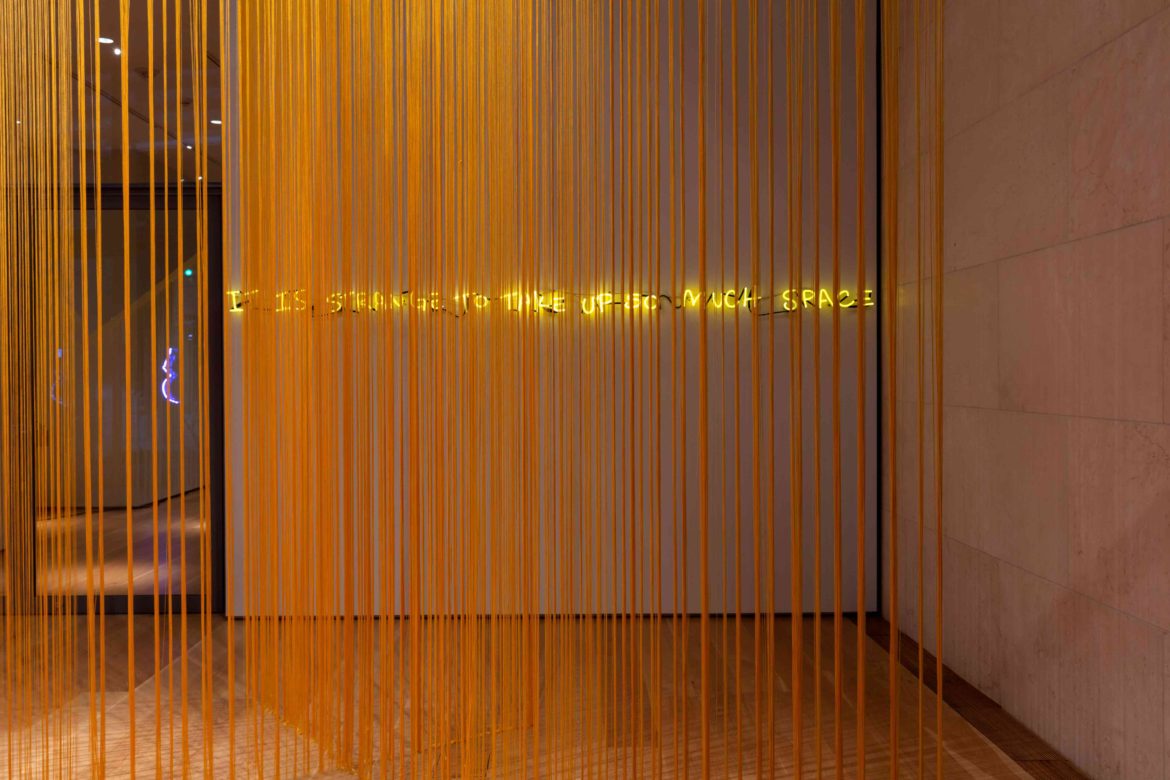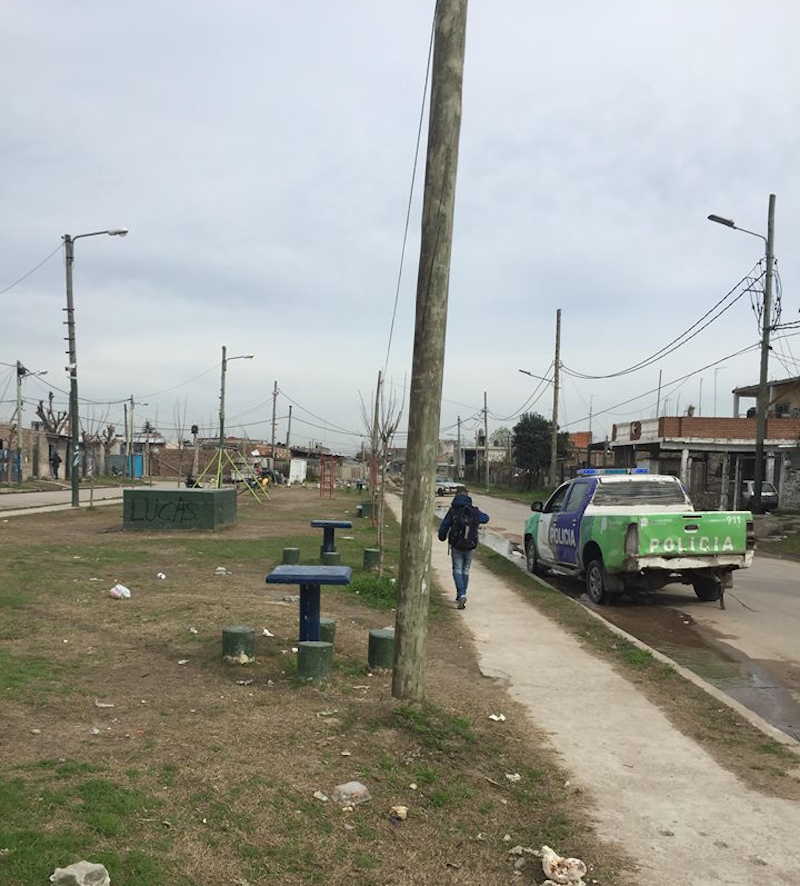The second exhibition of the Queer Birth Project, FUTURE KIN, was displayed this fall at Galleri Urbane.
FUTURE KIN reflects on contemporary LGBTQ+ families, envisioning new forms of kinship as a love letter to future generations. This exhibition explores the often-overlooked diversity of queer family structures through a dynamic mix of hanging fringe, neon sculptures, an interactive soundscape, glass mobiles, and video art. Unlike conventional family trees, which often adhere to hierarchical and gender-normative structures, the artworks in FUTURE KIN present kinship as dynamic constellations. These constellations emphasize non-hierarchical, gender-inclusive relations, challenging assumptions of heterosexuality, monogamy, assimilation, and biological ties. Blending artistic innovation with sociological research, FUTURE KIN offers reflections on evolving forms of belonging.
This exhibition is the second installment of The Queer Birth Project, a collaborative initiative by transmedia artist Liss LaFleur and sociologist Katherine Sobering. Based on original research with LGBTQ+ families, this work re-envisions artist Judy Chicago’s Birth Project (1980–85) and promotes a radically inclusive view of childbirth, reproductive justice, and family in a post-Roe era.






